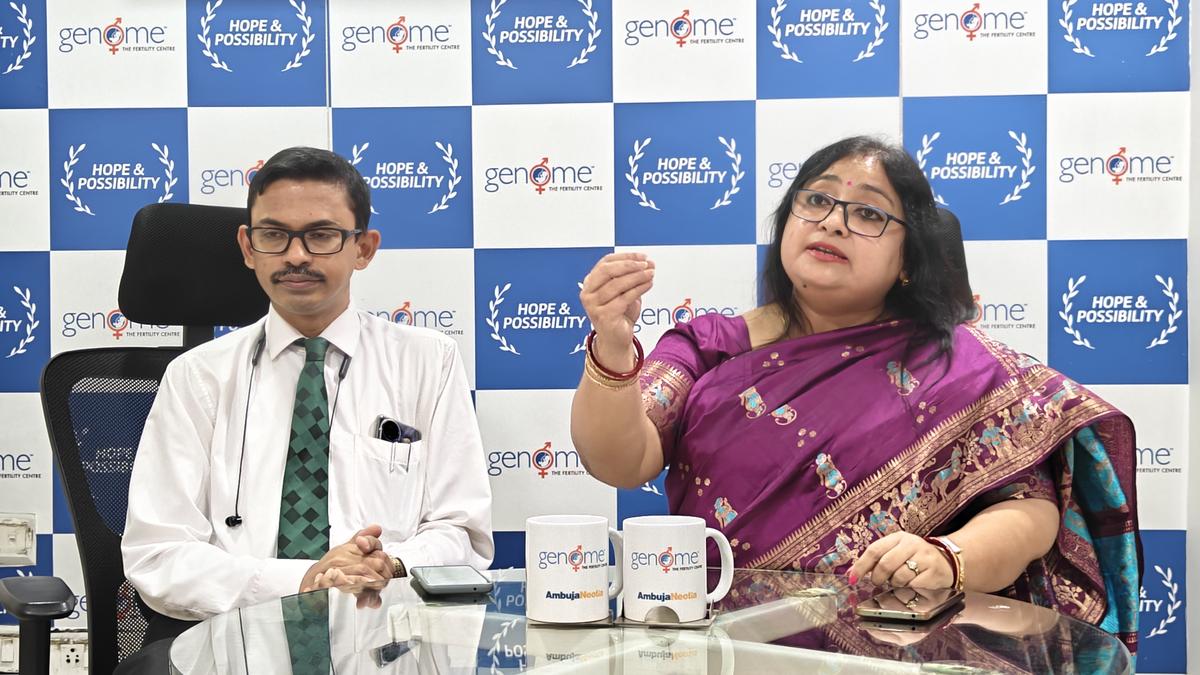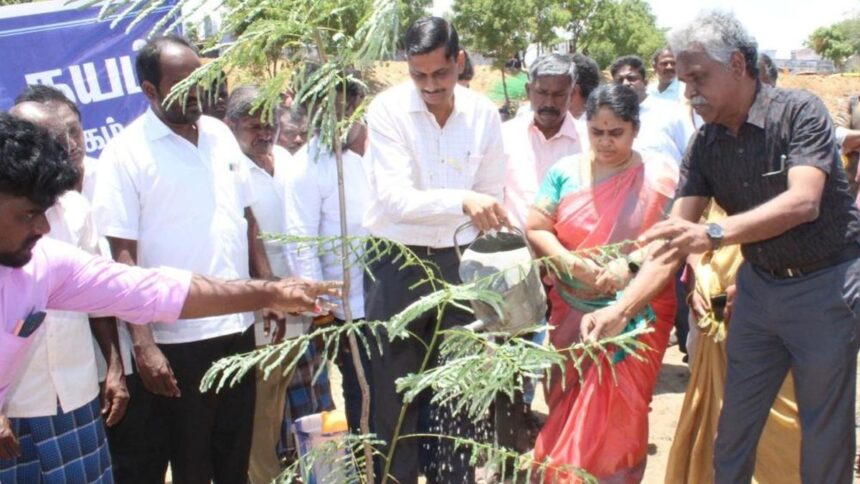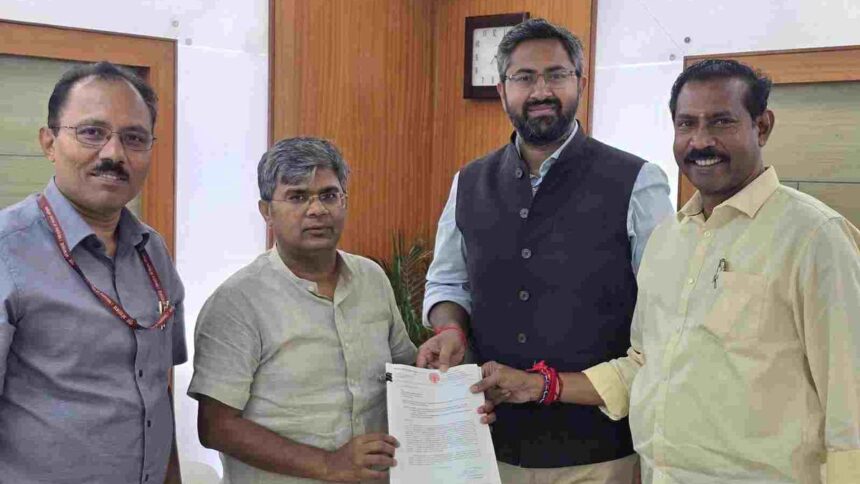
(Left to right) Dr. Sujay Das Gupta, Director – Clinical Services, Genome – The Fertility Centre and Emili Banerjee, Medical Geneticist, speaking about the need for genetic screening in IVF.
| Photo Credit: Shrabana Chatterjeee
As World IVF Day (July 25) approaches, fertility experts in Kolkata say there is an urgent need to integrate genetic screening into mainstream fertility care to improve chances of healthy babies and avoid failed pregnancies.
Emili Banerjee, Genetic Counsellor at Genome – The Fertility Centre in Kolkata said that the procedure of Preimplantation Genetic Testing (PGT) to select embryos without abnormalities for implantation can have better assurance of a successful pregnancy and has better chances of a healthy baby. She emphasied on how genetic testing can be beneficial “not only for those who are seeking IVF due to infertility, but also patients who have had recurrent pregnancy failures.”
Genome held a session on on July 23, on how to ‘Decode Infertility with Genetics’ where doctors and clinicians spoke at length about how advanced genetic screening is transforming the success rates of IVF and identifying the underlying causes of unexplained infertility.
There was an emphasis on how genetic screening has been of exceptional service to patients who had no hope of bearing a healthy child due to being carriers of serious inherited conditions. Some of them have genetic issues in their extended families which lead to failed pregnancies, but couples remain unaware of it for years.
“It is not obligatory for couples with genetic problems to seek sperm or egg donation, to opt for adoption or to refrain from marriage or childbearing entirely,” Genome Director of Clinical Service, Dr. Sanjay Das Gupta said, “PGT helps to determine if the baby would be born with inherited disorders such as Thalassemia or Spinal Muscular Atrophy (SMA) before the pregnancy even occurs.”
As a medical expert in the field of IVF, Dr Das Gupta suggested that when a couple is not able to conceive through natural conjugal relationship, but both the partners are healthy and have no apparent issues with their reproductive systems, there can be underlying genetic issues that can lead to unsuccessful pregnancies. That is why in such cases, genetic screening can help bring about positive change.
An integrated, team-based strategy can optimize the outcomes of assisted reproductive technology and guide patients to make informed reproductive decisions. The session conveyed how genetic screening is not rare or optional but rather a keystone in modern fertility care.
Published – July 24, 2025 03:20 am IST





















